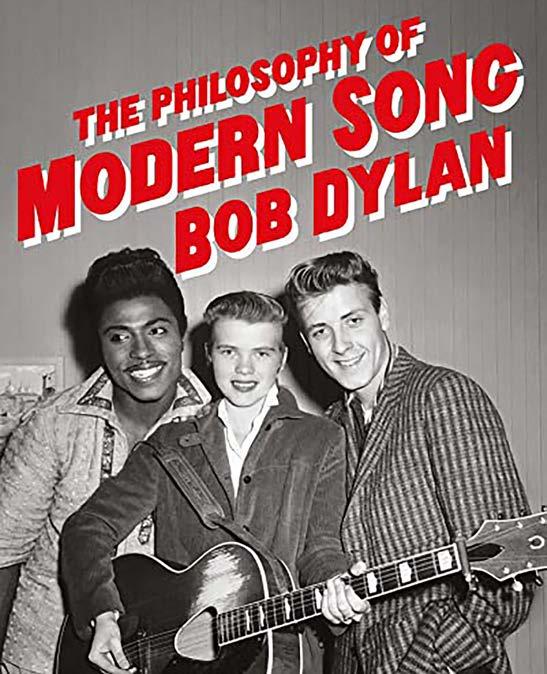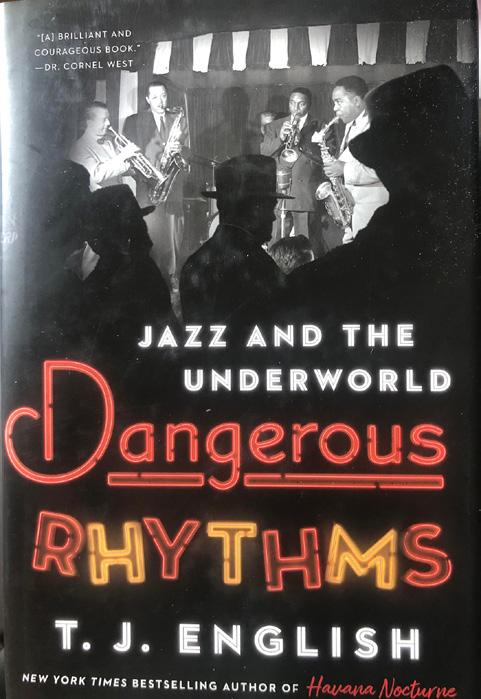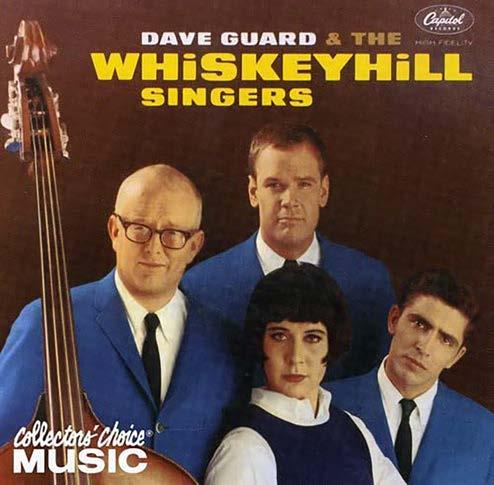
8 minute read
All The Rage. Paulie Stewart has documented his remarkable life in a compelling new book. By Jeff Jenkins.
An editor at the Sunday Herald Sun would often walk past Paulie Stewart’s desk and snidely remark: “You can’t write, can’t sing, can’t play a musical instrument. How do you survive?” While working at the newspaper, Stewart was the leader of the in-house band, The Young Ruperts. In his three decades at the company, he had just one encounter with the proprietor. When Murdoch spotted Stewart in his usual colourful attire, he remarked to the security guard. “Please tell me I don’t employ that guy.” “Yeah,” the guard replied, “that’s Paulie, he’s worked here for years.” While working as a music journalist, Stewart joined a band to play a one-off gig to pay the parking fines of their mate Bill Walsh, the drummer in Cosmic Psychos. “This was an era when music groups were admired for raising funds for good causes,” Stewart recalls. “I’ll admit that paying off Billy’s parking fines was not exactly battling famine in Africa but, hey, it seemed like a good excuse for a fun night.” The gig came to an abrupt halt when a guy who lived next door to the Port Melbourne pub stormed in and chopped up the mixing desk with an axe. “In a way, he was just delivering the first of many bad reviews we would receive over the years.” And the band that formed for just one gig? Well, the Painters & Dockers will celebrate their 40th anniversary in 2023. “I am so proud of the fact that we are still going, and that we have always been a people’s band – anyone can get up and perform with us,” Stewart writes in All the Rage, his just-released autobiography. It’s a riotous read. Stewart includes a warning at the start: “A large amount of this material was written under the influence of morphine and oxycodone in Ward 8 at the Austin Hospital … so don’t take it all as gospel.” Filled with laugh-out-loud moments and several heartbreaking and dramatic scenes, it’s a tale of triumph and tragedy. Stewart’s life was shaped by the death of his brother Tony, a member of the Balibo Five, a group of Australian journalists killed while covering the Indonesian invasion of East Timor in 1975. Stewart believes his absurd, anarchic antics were a reaction to his brother’s death. The first song he wrote was called ‘Pull Me Off (My Silly Pedestal)’, and the Dockers did a series of unforgettable gigs. Stewart recalls a show supporting Nick Cave, where “he came backstage to get ready, only to sit on one of our stage props: a huge fresh fish. ‘Hey, what’s with the snapper?’ Cave asked.” Another night, the Dockers supported The Pogues. Singer Shane MacGowan walked into their dressing room with blood pouring from his nose. When he ran through the planned set list, he was met by an awkward silence. “Ah, Shane, we are actually the support band. Your band is in the next room.” “Well, you can fuck off then,” MacGowan said before exiting. Remarkably, when Canadian rocker Bryan Adams started a record label at the end of the ’80s, he signed the Painters & Dockers. When they arrived in Canada for a tour, they were greeted by the record company who told them to “go ahead, we’re waiting for the band to arrive”. “They looked horrified when we told them we were in fact the band, not the road crew.” The Dockers did 28 shows in 32 days in Canada, touring at the same time as The Rolling Stones. The Vancouver Sun review was headed: ‘Painters & Dockers Cheaper and More Fun than the Stones’. To help promote their single ‘Safe Sex’, the tour was sponsored by King Kong Condoms and Stewart would throw condoms into the crowd. Waiting for them whenever they checked into a hotel would be a box of 500. “You guys like to party then,” noted one wide-eyed receptionist. Ah, yes. All the partying caught up with Paulie Stewart and he nearly died in 2007. He’s candid about why he needed a new liver. “I had contracted hep C by using shared needles ‘shooting up’ heroin. I didn’t do it for months, I didn’t do it 30, 20 or even 10 times. I did it three times. Why? Because my friend was doing it, and I was blind drunk. What an idiot I was.” In hospital, the singer woke up to be greeted by a nun from Timor-Leste. She told Stewart she would pray for him. The next day he got his new liver. “In the 1980s it was all sex, drugs and rock ’n’ roll, now I was hanging out with nuns,” smiles Stewart, who has dedicated his life to helping the people of TimorLeste. Renowned Australian author Inga Clendinnen – who also had a liver transplant – encouraged Stewart to write his life story. The result is a remarkable read – and a defiant middle-finger to that newspaper editor. Not only did Paulie Stewart survive, but he lived to tell the tale.
All the Rage is out now on Melbourne Books.
Advertisement
6 Things We Learn in All the Rage
Paulie is no fan of Gough
Paulie Stewart believes the Whitlam Government knew the fate of the Balibo Five a week before his family was told. “Seven agonising days,” he writes. “It was an unnecessary pain inflicted for the sake of diplomatic relations. In the decades that followed my brother’s death, I wrote to the Prime Minister Gough Whitlam and pleaded with him to contact Mum and offer his sympathies. After all, he was in charge when it happened.” The call never came.
He also doesn’t like Diana Krall
When Stewart brought a young work experience student to his interview with the Canadian jazz singer, she erupted. “Who is this? Who said she could come in? I want her out now!” The teenager left the room in tears and Krall “won herself one scathing write-up”.
But he loved interviewing Keith Richards
“Mate, you must have done millions of these interviews, but does Australia really stand out from other countries or is it all just one blur?” Stewart asked the Stones legend, who started singing, “There was a redback on the toilet seat when I was there last night. I didn’t see him in the dark but boy I felt his bite.” Stewart was so flustered, he forgot to turn his tape recorder on. “If only I had recorded it, added some backing music and released it as Keith Sings ‘Redback On the Toilet Seat’, I could have made a bloody fortune.”
18 He’s no good at career advice
Stewart was surprised when a band told him they were planning to quit rock ’n’ roll and form a kids group. “There’s no money or fame in children’s entertainment,” Stewart told The Cockroaches, who became The Wiggles.
Painters & Dockers weren’t TISM, but Paulie did give them a leg up
“One of the best compliments the Painters & Dockers received was the persistent rumour that we were actually TISM in disguise. I think this came about because one of the early reviews of the band said, ‘These guys are shithouse, just like the Painters & Dockers but in masks.’” A family connection led to Stewart being given a tape of the band. “I was intrigued by the label – ‘Defecate On My Face’ – and when I popped it into a cassette player, the song was a ripper. I passed the tape on to Michael Lynch [who became TISM’s manager].”
The legendary Lobby Loyde got the Dockers a record deal
Guitar great Lobby Loyde became the Painters & Dockers producer and manager, getting them a record deal with Michael Gudinski’s Mushroom label. “At one point he drove me crazy by having a lengthy dispute with Gudinski over our record deal,” Stewart reveals. “Lobby refused to sign it unless Gudinski agreed that if life were found on other planets, Lobby would have the right to negotiate a separate deal with the aliens … Lobby: great guy, great musician, utterly useless businessman.”
CIS U M NE WS
Artist, activist, writer, raconteur … Paulie Stewart has always done things his own way. And now he’s documented his remarkable life in a compelling new book.
By Jeff Jenkins
Read Rage 5 Great Quotes
“I liked the anarchy we brought to many a suburban pub and I liked shit-stirring. The thought of being a normal, mainstream popstar appalled me. With a murdered brother forever lurking on my mind, I couldn’t tolerate normal and relaxed. If life was short, I wanted to make my mark and scream into the night.” “Apparently, I had an unsavoury reputation … this wasn’t helped by one of my early media interviews about the Dockers, in which I was asked if I had any hobbies. ‘Taking amphetamines’ was not a wise answer.” “I had lived like there was no tomorrow, but tomorrow came.” “My most startling discovery was just how boring boozy conversations are when you are sober. After decades of thinking that my drunken banter was hilarious and amazingly astute, I suddenly realised that it was just repetitive blather.” “And for all my sins, I have been lucky enough to love and be loved.”
Write On
Those who can’t do, write? But some journalists are also musically talented. Alongside Paulie Stewart, here’s a list of six local writers who also rock. Sean Sennett – The long-time editor and publisher of Brisbane street press publication Time Off has also made records with Rob Hirst, Steve Kilbey and Kate Ceberano, and written songs with Ross Wilson and Stephen Cummings. Christopher Hollow – The Rhythms columnist (“Underwater Is Where The Action Is”) is the bass player in Melbourne flower punks The Sand Pebbles, who have released seven albums. Jo Roberts – The Rhythms writer and former editor of The Age’s EG is the guitarist in Melbourne band Holocene. Keith Glass – The long-time Rhythms contributor fronted the ’60s band Cam-Pact. He released his debut solo album, Going Over Old Ground, in 1989 and has issued a number of records since. Iain Shedden – The music writer for The Australian was also the drummer in The Saints. He died in 2017. Greg Quill – After fronting ’70s band Country Radio, Quill moved to Canada, where he was the entertainment writer at the Toronto Star until his death in 2013.











